Ramadan is less than 10 days away, and the streets of Palestine are unrecognizable.
Every year Palestinians from across Gaza, Israel, Jerusalem, and the West Bank join millions of Muslims around the world in observing the Islamic holy month of Ramadan.
For Palestinians, the month is not only a time of heightened devotion and worship, but a time to gather with friends and family and celebrate a number of traditions.
But at a time when Palestinians would usually be flooding the markets doing Ramadan shopping and hanging festive lights and other decorations outside their homes, the streets are empty, and the usual excitement and anticipation has been replaced with an air of sadness.
Like much of the rest of the world, Palestinians are still under lockdown due to the coronavirus, which has continued to spread across Israel and the occupied territory, forcing people to quarantine and social distance.
With Ramadan centered around gathering — gathering in the mosque to pray, and gathering around the table to share food with friends and family — Palestinians and Muslims all over the world are being faced with yet another challenge due to the coronavirus.
“My feeling, and the feelings of all Palestinians at this moment is we are very sad,” Sheikh Abed al-Majid Amarna, 62, the Mufti of the Bethlehem governorate told Mondoweiss.
“Ramadan is going to be very different this year for Palestinians, and for Muslims around the world,” Amarna said. “So we are just going to have to find new ways to adjust to observe Ramadan under corona.”

Places of worship remain shuttered
When the coronavirus outbreak began in the city of Bethlehem in early March, dozens and mosques and churches were closed around the city, many for the first time in decades.
While keeping people out of mosques over the past month has gone over with relative ease, the month of Ramadan typically sees a large influx of worshipers going to mosques to pray in congregation, as the Quran tells Muslims that praying in congregation carries more blessings than praying alone.
“People are feeling very sad that Ramadan is coming soon and the mosques are still closed,” Amarna said, adding that he has received dozens of calls from worshipers over the past few days asking if the mosque will be opened for the holy month.
“I feel really bad about it, but I have to tell them that our mosques are likely going to be closed,” Amarna said, adding that during Ramadan mosques are not only places of worship, but places where people come to socialize and spend time with one another.”
On the other side of the wall, in occupied East Jerusalem, Alaa Daya, a 23-year-old film student from the Old City laments the fact that the Al-Aqsa mosque, the third holiest place in Islam and a place that attracts thousands of worshipers every day, especially in Ramadan, will remain closed for Ramadan.
“This is the first time in my life that I will see Al-Aqsa closed down,” Daya told Mondoweiss. “It’s really disheartening.”
“This time of year the streets of the Old City are usually packed with Palestinians from all over the country, as well as other Muslims from around the world who come to spend their Ramadan here in this holy place,” she said. “But now it’s like a city of ghosts.”
In addition to missing out on prayers that draw tens of thousands of worshipers from across Palestine and the world, Daya said she and her friends were looking forward to hanging out in the expansive courtyard and grounds surrounding the mosque.
“In the Old City, our houses are really small and jam-packed together, so we often gather together at the Al-Aqsa compound and hang out after the night prayers are finished,” she said. “But now because of the coronavirus we won’t be able to do that. It’s really sad.”
Finding new ways to worship
Despite the challenges posed by the coronavirus lockdown, Sheikh Amarna and other religious leaders in Bethlehem and across Palestine are trying to find new ways to adapt to observing Ramadan this year.
“We are doing the best we can to come up with new and creative ways for people to still feel like they are getting the most out of this month,” Amarna told Mondoweiss.
Among some new measures that leaders will undertake are conducting Islamic history and spiritual lessons, a tradition during Ramadan, on television channels and over live streams on social media.
“We have opened up our phone lines and social media to people so that if they have any questions during this month, or they want to learn more about Islam, they can do so by watching their TVs and phones instead of going to the mosque,” Amarna said.
Amarna also urged people to pray Tarawih, the additional ritual prayers performed by Muslims at night after the Isha prayer during Ramadan, at home with their families.
“They can congregate with their family, someone in the family can lead the prayer, and it will give them the same blessings as if they are praying in the mosque,” Amarna said.
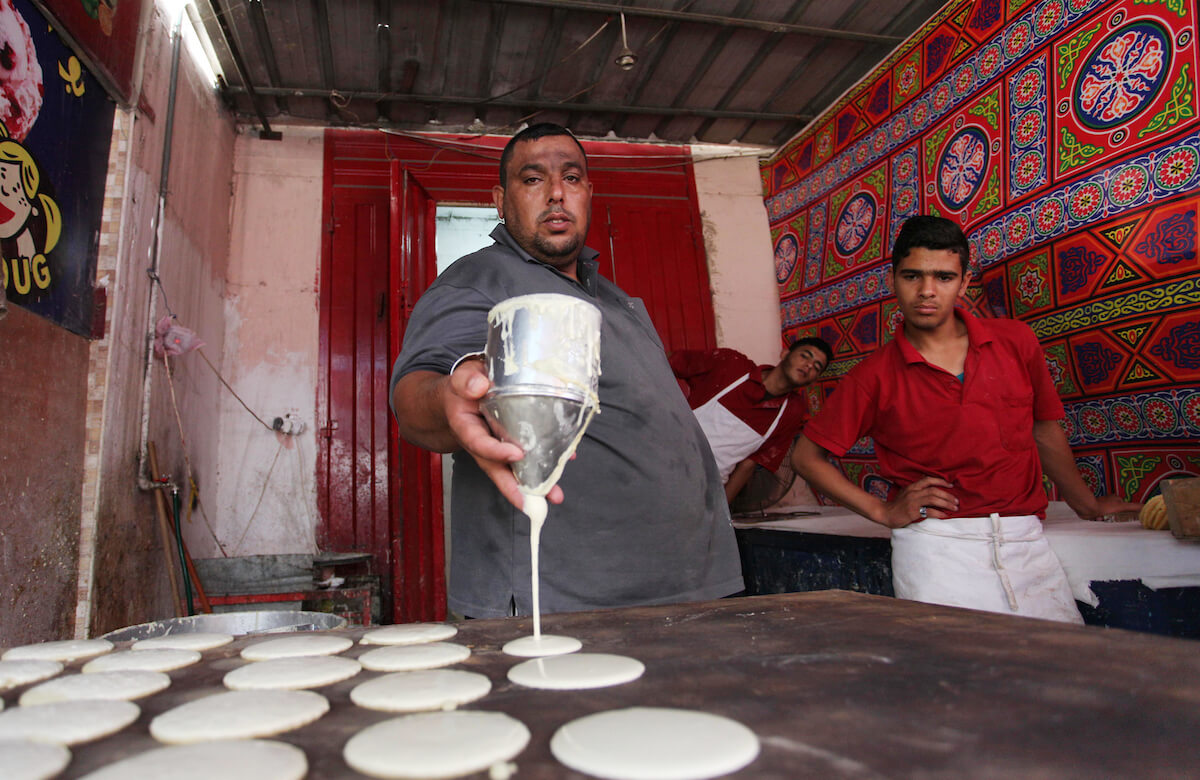
‘You can feel the difference’
In addition to finding new ways to worship, Palestinians will also be forced to adjust their cultural and social habits during Ramadan.
Waleed Da’na, 53, a bakery shop owner from Bethlehem told Mondoweiss that he could tell Ramadan would be different this year from the lack of people making and purchasing qatayef, sweet folded pancakes filled with cream or spiced walnuts, the official dessert of Ramadan.
“Usually you can smell the qatayef this time of year, right before Ramadan, wafting through the streets. But because everyone is stuck inside, we have barely been getting any customers,” he said, adding that he sees an influx of both Muslim and Christian customers who wait year-round to enjoy the special Ramadan sweets.
“Ramadan has something special in the way we do things in Palestine,” Da’na said. “You can really feel that this year is different.”
“Ramadan isn’t just for praying and worship, it is also a time for people to gather and sit together, share meals and stories together, and reconnect with one another” he continued. “It’s a really special time for families and neighbors to reconnect with one another. “
Da’na, like Sheikh Amarna and Alaa Daya, said he hoped that families would still make the most of the month together and try to enjoy it as much as possible, despite the difficult circumstances.
“Even if people are celebrating alone in their homes, I hope they have a happy and blessed Ramadan.”
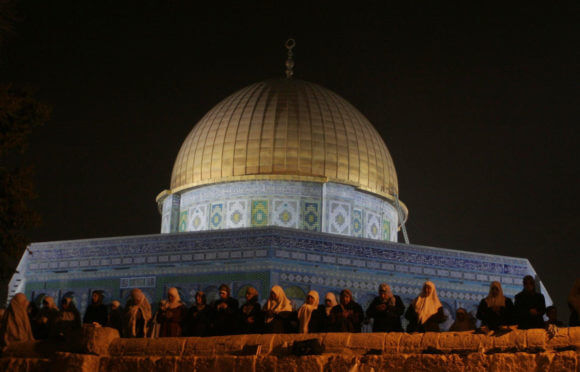
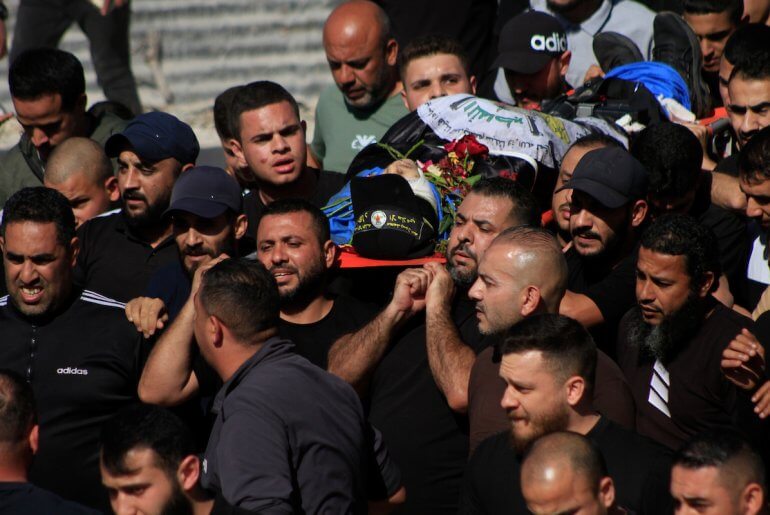
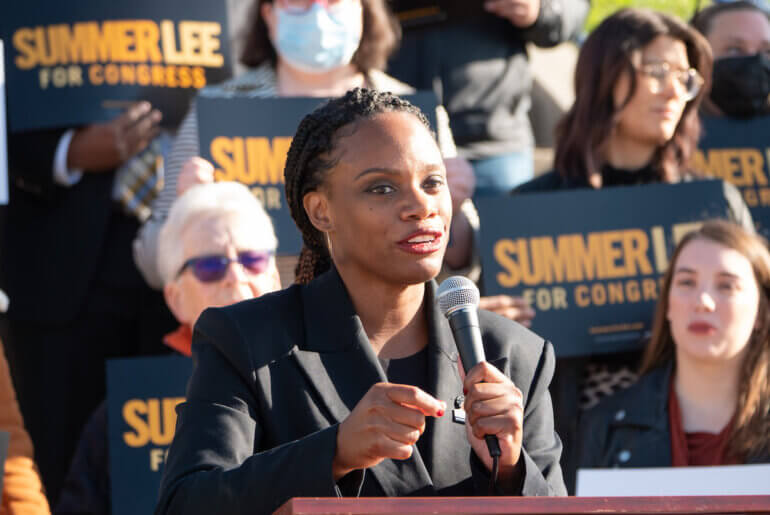
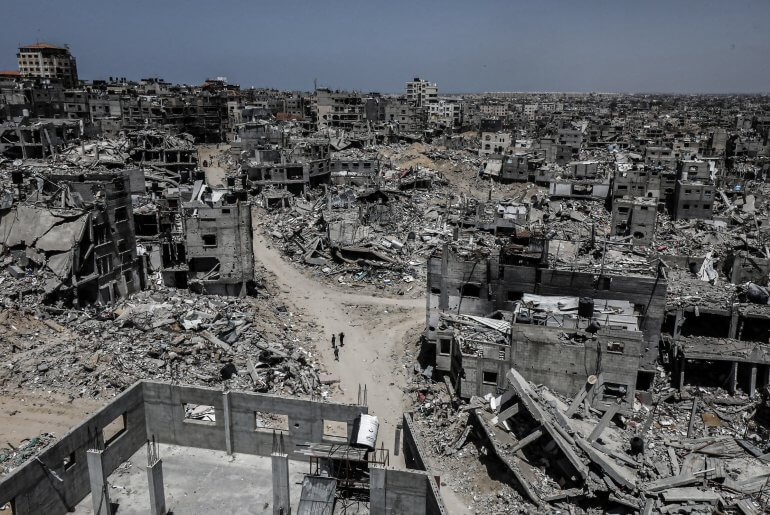
https://electronicintifada.net/blogs/tamara-nassar/israeli-neglect-fuels-coronavirus-east-jerusalem
“Israeli neglect fuels coronavirus in East Jerusalem” Electronic Intifada, April 15/20 by Tamara Nassar
“Palestinians in occupied East Jerusalem face the prospect of a major coronavirus outbreak, fueled and exacerbated by Israeli neglect.
“Despite repeated warnings from health professionals and even Israel’s mayor of Jerusalem Moshe Leon, Israel has done little to prevent an outbreak.
“What makes the situation even worse is no one has an accurate picture of how widespread infections are in Palestinian neighborhoods.
“’Of increasing concern is the lack of information regarding cases in East Jerusalem, as these are not covered by the Palestinian Ministry of Health and are not disaggregated in the overall figures by the Israeli authorities,’ the UN humanitarian coordination agency OCHA said on Tuesday.
“There are about 300 confirmed cases in the West Bank, outside Jerusalem, while Israel has recorded more than 12,000 cases.
“The number of confirmed coronavirus cases in East Jerusalem went from five to almost 100 in the past three weeks alone, according to some reports.
“Despite the lack of testing in the area, Israeli police shut down a coronavirus clinic in the East Jerusalem neighborhood of Silwan on Tuesday.
“Israeli police questioned neighbors and arrested four activists involved in setting up the clinic.
“Ignoring obligations”
“The reason was that the clinic was operating in collaboration with the Palestinian Authority.”
“Israel has annexed occupied East Jerusalem in defiance of international law and claims the entire city as its capital – an assertion rejected by all but a handful of countries.
“As part of its effort to assert its exclusive claim to Jerusalem, Israel bans the Palestinian Authority from activities in the city, while it neglects the needs of the Palestinian population.
“Silwan contains almost half of the known coronavirus cases in Jerusalem and has a shortage in testing supplies, according to local health experts.
“Silwan, along with Shuafat refugee camp, Kufr Aqab, Issawiyeh and neighboring areas are under the control of the Israeli Jerusalem municipality.
“This means that the lockdown imposed by the Palestinian Authority in the parts of the occupied West Bank it controls does not apply to residents of those neighborhoods.
“At the same time, Israel is not fulfilling its obligations towards them.
“’The Israeli health ministry is responsible for ensuring the health and well-being of these residents, as the Palestinian health ministry is not allowed to give them any services,’ Adalah, a group that advocates for the rights of Palestinians in Israel, stated.
“Last week, Leon, the Israeli mayor, accused Israel’s health ministry of neglecting Palestinian hospitals in the eastern sector of the city.
“’I would like to warn you regarding the serious shortage of medical equipment at the hospitals in East Jerusalem, particularly protective equipment and equipment to conduct coronavirus testing,’ he wrote to the ministry.
“Of the six hospitals in East Jerusalem, only two are equipped with special coronavirus units.
“OCHA notes that the Jerusalem hospitals serving Palestinians ‘continue to suffer from chronic underfunding, which hinders the provision of medical drugs and treatment.’
“The European Union last week announced an emergency aid package of around $71 million to help Palestinians fight the pandemic. It includes almost $10 million in additional funding for the East Jerusalem hospitals.
“Another obstacle is that Israel treats many Palestinian Jerusalemites as if they were living illegally in their own city. This will make many afraid to seek medical treatment, fearing it could result in their expulsion.
“Pledge to open clinics”
“Adalah accused the Israeli health ministry of putting the lives of Palestinians in East Jerusalem neighborhoods at ‘grave risk’ and demanded testing.
“The group submitted an urgent petition to Israel’s high court on 8 April demanding an explanation for why the health ministry is failing to provide adequate resources to neighborhoods including Shuafat refugee camp and Kufr Aqab.
“Although Israel considers these neighborhoods to be part of its ‘capital,’ they are cut off from the rest of the city by Israel’s separation wall.
“They are also among the city’s most overcrowded neighborhoods.
“In response, Israel committed on Monday to open clinics and testing centers for some 150,000 East Jerusalem residents, starting Tuesday.
“Adalah welcomed this ‘important step,’ but said it was not enough and came too late.
“’In the absence of coronavirus testing over the past month and a half, Israel does not have the slightest idea about the extent of the virus’ spread in these Palestinian neighborhoods,’ the group said.”